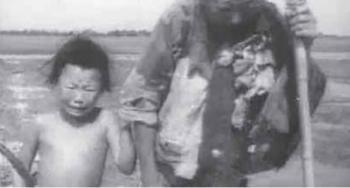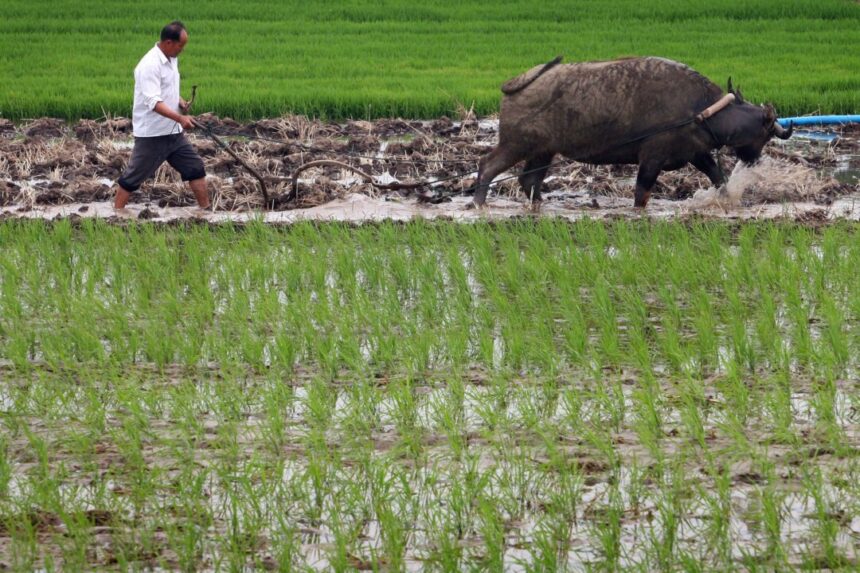The recent change in China’s pension system will result in older Chinese farmers having fewer years to enjoy their pensions and more years to contribute. This decision, made by the Chinese regime, will impact over 400 million people, leaving them with less time to enjoy their pensions and more time to contribute. Specifically, over 200 million elderly Chinese farmers will be affected, as they were not eligible for pension plans until 2009, unlike urban workers who started in 1978. The policy change is seen as passing the failure of the pension plan onto the general public, especially farmers who have sacrificed the most under the rule of the Chinese Communist Party (CCP). This change is expected to bring additional stress to a society already struggling with economic disparities and a slowdown.
Liu Jin/AFP/Getty Images
Apart from the social security system, CCP’s one-child policy, which lasted for more than three decades up to 2016, is also blamed for the challenges faced by the elderly in China’s rural areas.
The restriction of allowing only one child in each family has resulted in a smaller labor force and less economic capacity to support the elderly, said Cai Shenkun, a U.S.-based China affairs commentator on NTD’s Pinnacle View program.
Cai said many young Chinese have to leave their hometown to earn money and cannot take care of their elderly.
“Old-aged farmers are basically left to fend for themselves unless they can earn a living or have savings,” Cai said.
Chinese peasants are among those who made the greatest sacrifices for the CCP, experts say. First, they helped the party gain power in China, then were severely squeezed in the country’s urbanization and industrialization process, according to Shi Shan, a China expert and contributor to The Epoch Times.
For example, the peasants of northern Shaanxi, where the CCP’s base was, took care of military logistical supplies during the 1930s and 1940s, while sending their children and grandchildren to fight in the communist army.

Children were among those who suffered from the failed Great Leap Forward and subsequent famine. NTDTV
From the 1950s to the 1970s, during the period of China’s planned economy, the CCP turned to a strategy of resource extraction from the agricultural sector—lowering state-controlled agricultural prices, which came at a significant cost to the farming population through reduced living standards and even famines—to secure for the regime its initial capital funds for industrialization.
Over the decades since the 1980s, farmers have lost their land amid the CCP’s push for urbanization and have been deprived of trillions of dollars of income, Shi said. This includes agricultural taxes, housing provident funds, rural education surcharges, fees for birth control, militia training, building township roads, and all kinds of taxes that local governments can demand.
Farmers bear the brunt of the striking disparity in the CCP’s welfare system, Shi said.
“They [Chinese peasants] pay the most for but enjoy the least social welfare, including pensions. There is no such thing as retirement for Chinese farmers; many of them have to work in the fields to make a living at 70 and 80.”





